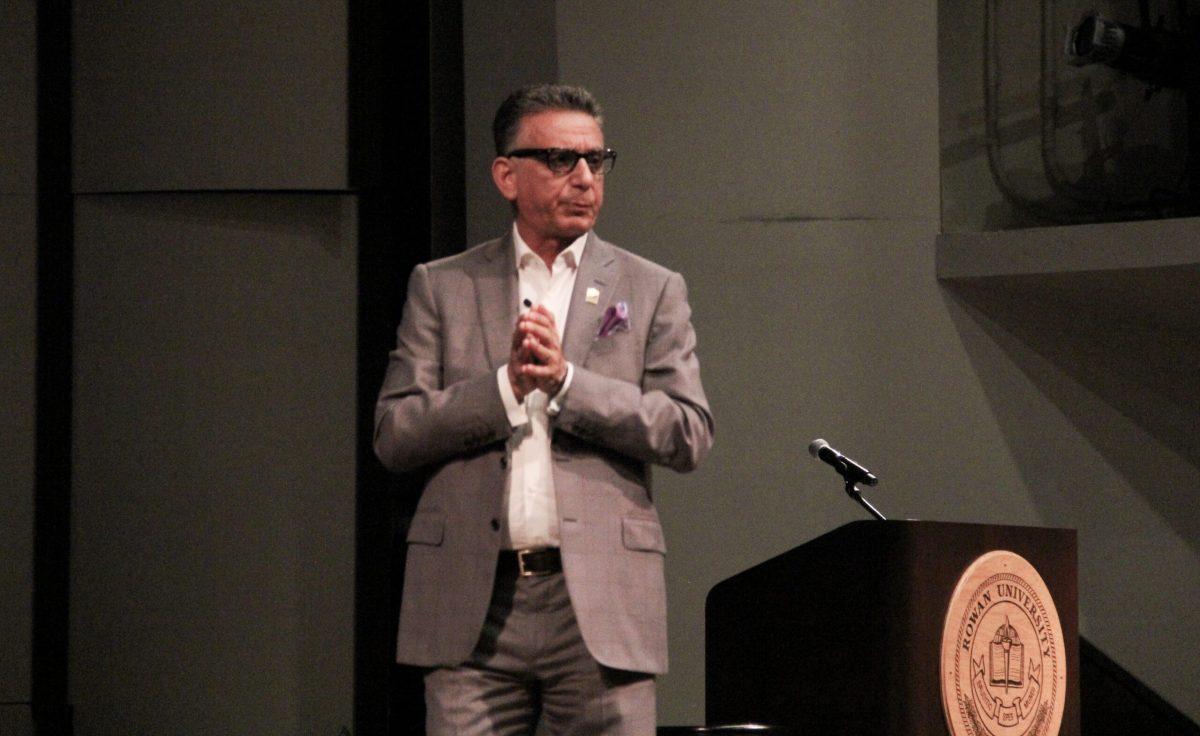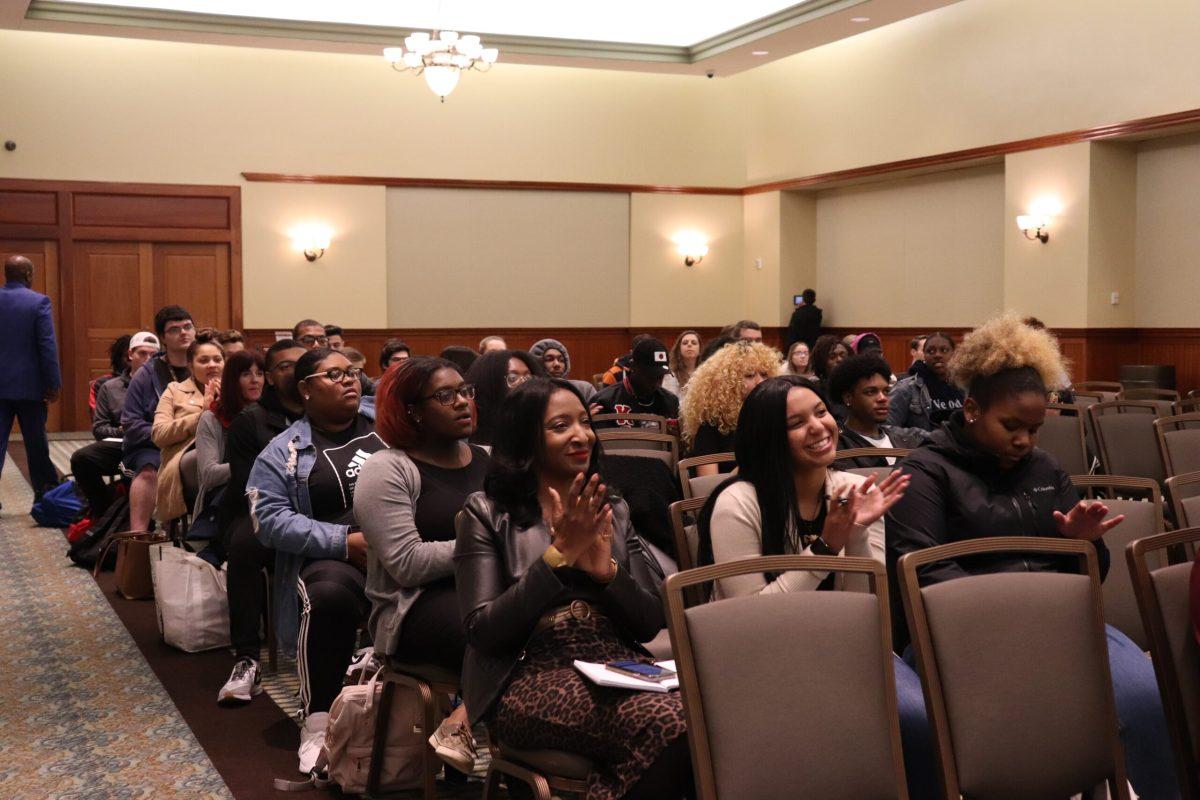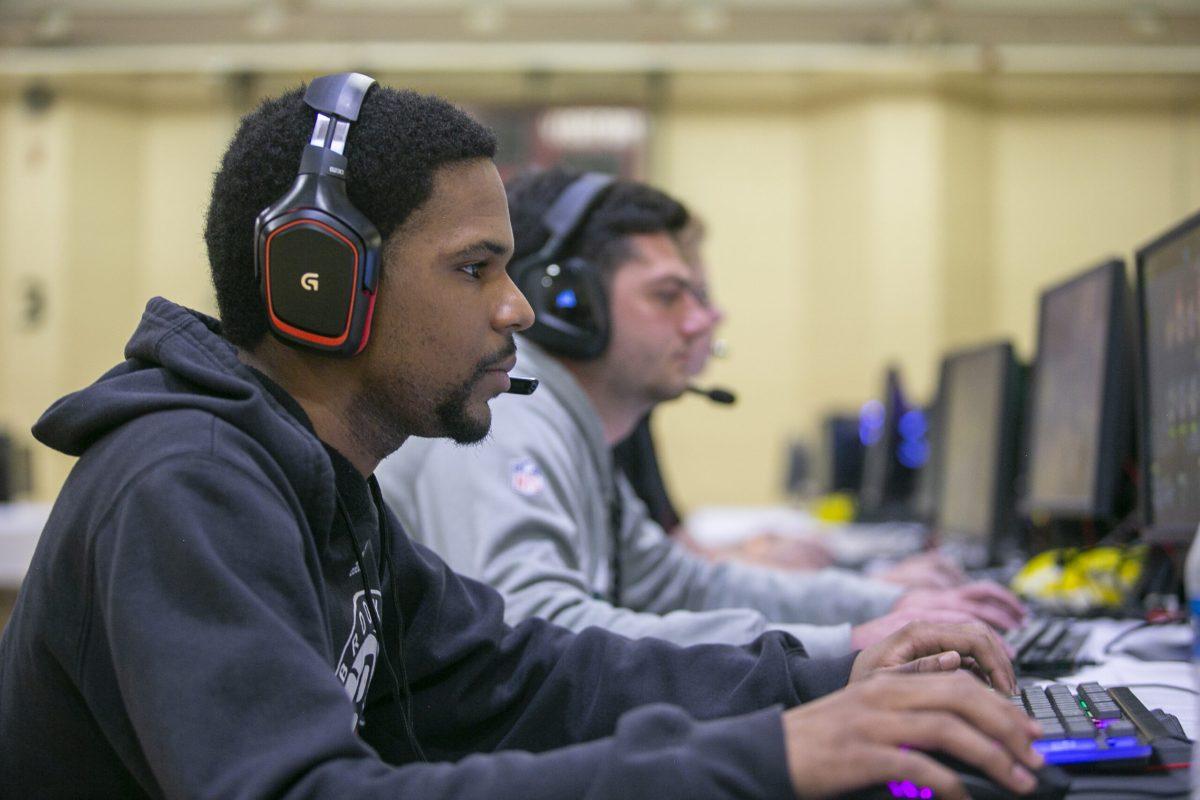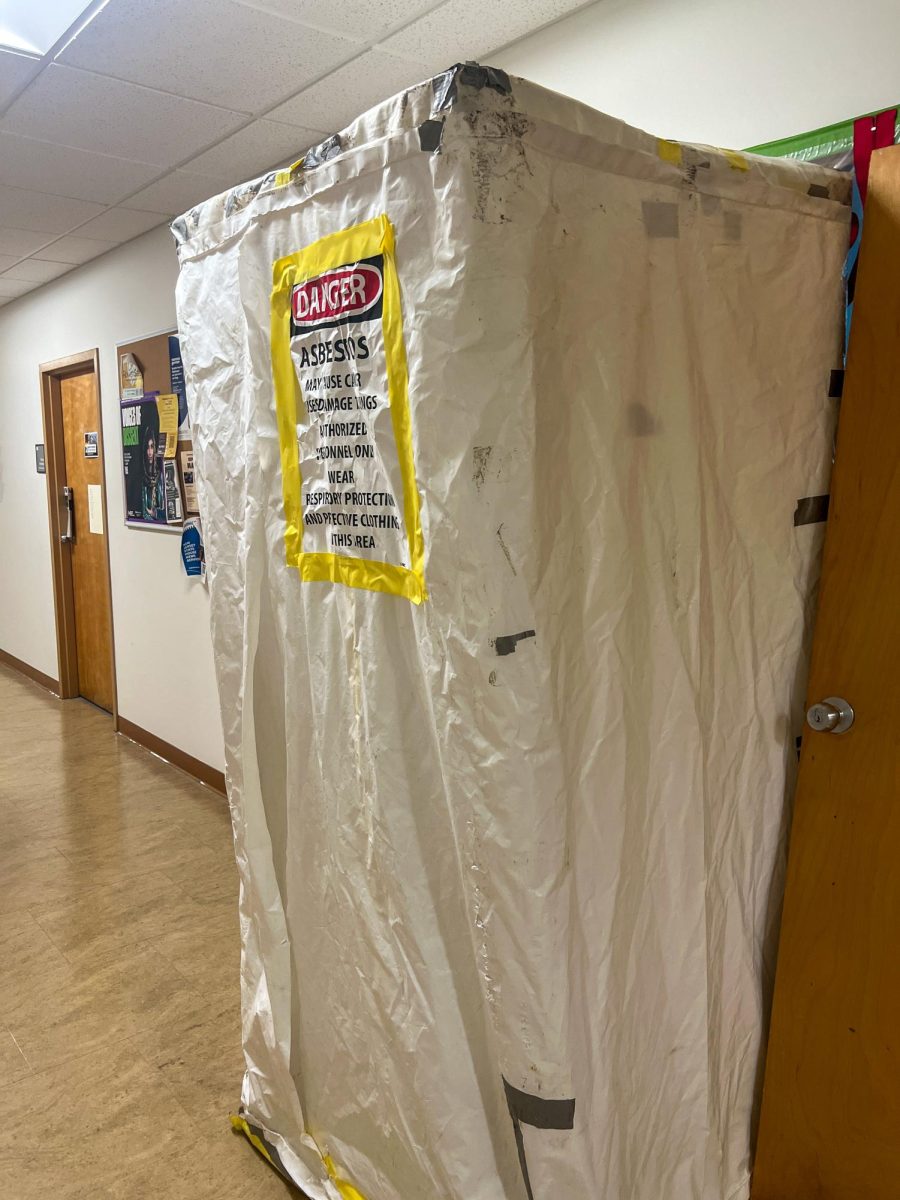Friday’s Rowan University Assembly unveiled notable plans for the growth of the institution but was bogged down by concerns regarding faculty contracts.
During the open question portion of the assembly, Rowan University President Ali Houshmand may have preferred to discuss the school’s rising national profile, solutions to outdated housing and extensive partnership programs with community colleges, but Rowan’s American Federation of Teachers (AFT) had other priorities.
Rowan’s professors, adjuncts and faculty have been without a new contract since July 1. Contract negotiations have been ongoing since April, involving State Spokespeople, a four-person committee of senior Rowan administrative employees and AFT representatives, according to Rowan’s Senior Vice President of Administration, Robert A. Zazzali.

During a pointed exchange between Houshmand and AFT Rowan chapter president Dr. Joseph Basso, the two men sparred over their points of disagreement. The discussion was cordial, yet showcased their difference of opinions over this consequential issue. He raised concerns about the Wellness center’s over encumbered staff. This directly impacts students who rely on the center for support, especially those affected by mental illness.
Basso also took issue with specific language in their contracts being ‘localized’; rather than in their statewide contracts.
“The closer we get, Dr. Houshmand, to putting things into local negotiation, the closer we get to losing our right to fair representation with unions. We know that,” Basso said, citing the recent Janus decision in the supreme court that effectively weakened unions.
Some members are feeling slighted by the lack of progress in the negotiations and blame the administration.
“Our administration is not budging at all in contract negotiations,” Pam Marshall, a communications professor said. “Our belief [among some teachers] is that they are trying to break up the union… and take away tenure.”
It’s important to note the school administration doesn’t directly determine contracts, rather they are part of a larger body involving other New Jersey universities. It is a cooperative effort between neighboring institutions to fulfill mutual needs and Houshmand made clear his influence over this process is limited.
“We wish them to get the contract completed, so we can get it signed and get on with our lives, give them the raises they deserve,” Houshmand said. “This is something the governor decides… The happier the staff, the happier [the students], the happier the university.”
Basso isn’t just concerned about professors and adjuncts, but rather the faculty at large, who do, as he describes the “yeoman work.”
“People here are struggling,” Basso said. “We haven’t even met the basic cost of living in several years… we keep getting pushed back. Healthcare [costs] have been going up. If you look at the salaries of the last five-to-ten years, even the people at the top of our range are making less money because their raises don’t compete with the cost of living.”
Zazzali gave an optimistic timeline for achieving a compromise in negotiations.
“The last contract took two years to years to settle. We’re four months into this. I know people are antsy and that’s understandable, but I’m confident we’ll get something done and it certainly won’t take two years.”
For comments/questions about this story, email [email protected] or tweet @TheWhitOnline










































































































































































































